Studies in animals, and humans, have shown that the mere association with reward for particular behavior can quickly replace the need for direct reward. The brain assumes that a reward is coming and begins to signal that we ought to behave in a particular manner to receive that reward. In turn, this neural firing on the part of Mr. Brainy can be so overwhelmingly powerful (in the case of sucrose-based food rewards and drugs like cocaine) that it occludes all other activities and pursuits altogether.
How does this relate to working with horses, or even being a rider? Ever worked with a horse who cannot get over his spookiness to a particular object or place? How about one who was abused and continues to object through wild head-swinging antics before you even touch anywhere near his head? And for the rider who finds themselves overcome with fear at the thought of cantering since falling off their horse at the canter years previous? This is just touching on fear being the emotion elicited through associative response – what about other emotions?
For me I know there is an excited emotion that occurs at the thought of going for a trail ride or attending a horse event. These are positive experiences for me and just the mere thought of them is enough to increase my heart rate, speed up my thoughts and actions and change my mood altogether to happiness. I see similar reactions in my horses where they've related loading on the trailer to be a positive experience that often results in a fun ride down the trails in the company of other horses. Or even being caught – the mere sight of me heading to the pasture gate is enough to cause them to trot to it in greeting. That is without carrying a halter; with one in hand they make unsolicited attempts to put their nose in the halter or somehow interact with it which would result in possibly being groomed, worked, ridden, etc. For them that is a positive experience and before the reward (ie, grooming) even begins they are already making efforts to create that outcome based on their association with being caught from the pasture.
This is an important observation to make because it can also point to the inspiration for many of the good AND bad habits that our horses have, and lead to ways we can further enforce or reduce them. It is also vital to gauging how we respond to our horse in the first place – is he expecting x, y and z to happen because they are associating those with the action, personal habit, or location we are in right now? Why might a horse dance around in one stall but not the next one over – aren't they identical? What is the horse associating to one stall over another? This is a simplified example.
Many times as equestrians we overlook the habitual actions we make with our horses. Even more common is to behave in one way with one horse and another way entirely with another. We lack personal consistency and self-awareness to our actions and that inhibits our ability to understand fully our own horses' reactions and actions. We may hold the lead a couple inches shorter with one horse we are feeling emotionally nervous with and that could mean the difference between success and failure in training with them as it sets the stage – and may also set off an associative reaction on the part of the horse. He may relate abusive handling to an experience with someone who held the lead at the same shortened length but not with others who gave him a bit more lead leway.
This is not to say that every action must be filtered and adjusted to every horse. However, self-awareness is key to building a relationship with the horse in a fair way. Is he just reacting to be naughty or is he associating our actions with a negative experience in the past? We as people respond in-kind with each other as well. We avoid certain personalities based on past experiences and this is all part and parcel in our attempts to be safe and seek comfort. The horse is no different, he has no desire to be abused, mishandled and mistreated. He will naturally seek situations that result in comfort and safety, situations which are influenced by association. A horse who was whipped to get on the trailer once may continue to experience great anxiety at the sight of the trailer – not because he is afraid of the trailer or doesn't know how to load, but because he associates the trailer with being beaten, a negative experience.
Further, this kind of self-awareness in ourselves as well as appreciation that the horse may be acting only out of motivation to feel safe and comfortable now removes the idea of a naughty personality in the horse. When the horse no longer represents a “naughty” personality it frees us to interact with him from a different place, a new mind-set. The horse is only seeking the same thing we are, is genuinely our partner rather than an animal we must struggle to “convince” and manipulate towards our purposes.
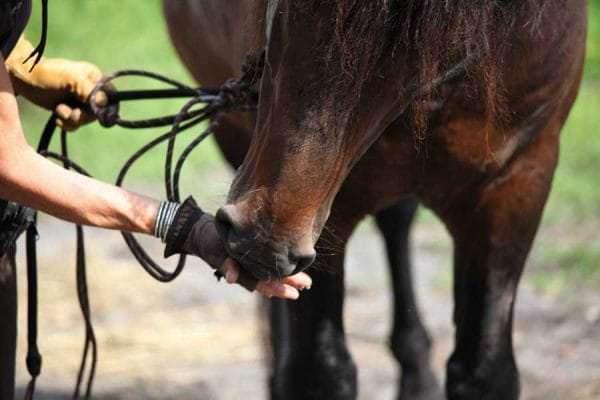
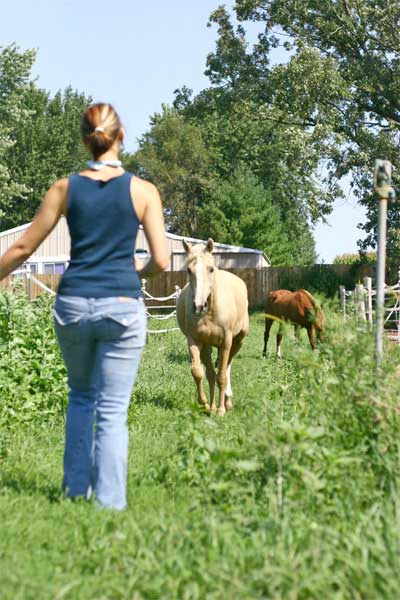
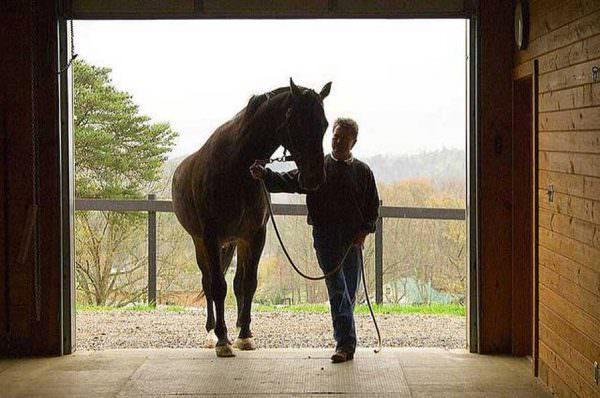
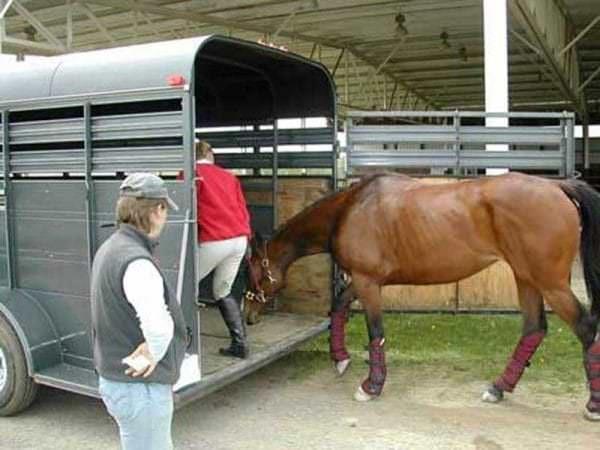
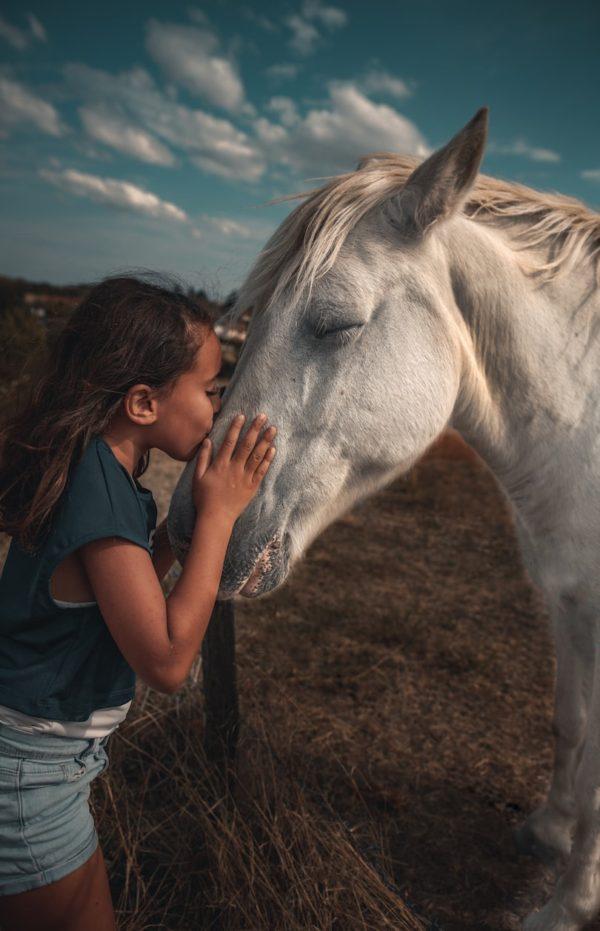
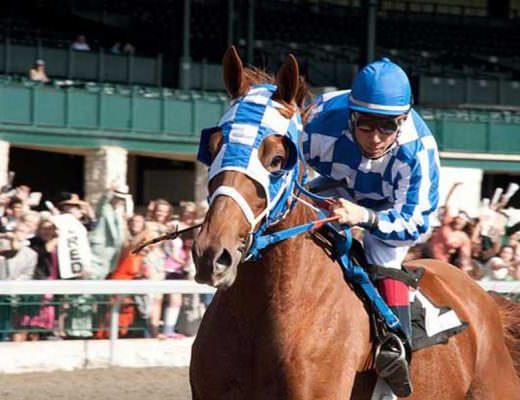

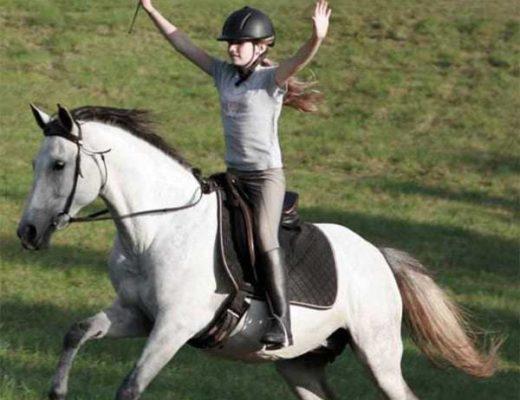
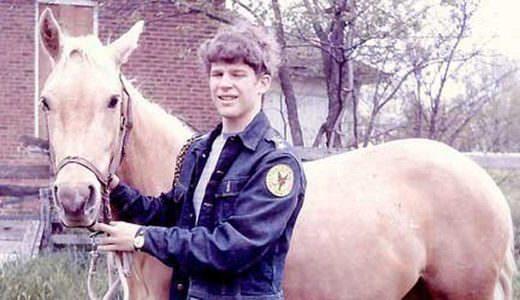

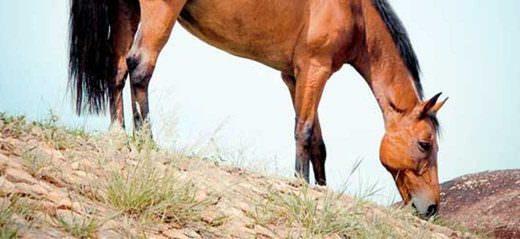
Very well written article that I hope more people read. This is also good advice for dealing with dogs. I see too many dogs that don’t like car rides because they think they are going to the vet.
Awareness – so needed! Thank you.
I tweeted and Facebooked (do the same please): Association Is More Powerful Than Reward? – good advice for #horse & #dog owners http://ow.ly/9c9ee #horsetraining #dogtraining #equine
You may think this impossibly trivial but:
May I remind you that from a taxonomic as well as a linguistic perspective that to set off (as you have done in this Blog post) the binary/dichotomy “animal”/’human” that…
…you have set off a false dichotomy.
Why?
Because homo sapiens sapiens (colloquially known as “humans”) is a member species of…
…Kingdom Animalia.
It would be correct & avoid bigotry (i.e., speciesism) of all kind (if you feel a need to set off a binary/dichotomy) to use…
…”human” vs. “non-human…animal species.
Using the false binary of animal” vs. “human” is…nothing more than an instance of…species-centric bigotry…or what Richard Ryder termed…
…speciesism (which he defined as a term to denote a prejudice against non-humans based on physical differences that are…then… given moral value).
I enjoy your Blog immensely. Furthermore, you strike me as someone who would not knowingly or willingly engage in any form of…bigotry.
Regards, Shoshin
Hi Shoshin,
Thank you for reminding me of the taxonomy of humans vs. non-humans. Certainly not my intention to be biased against non-humans by mislabeling them and I will correct the wording of this article as soon as possible. 🙂
Thank you,
Erica